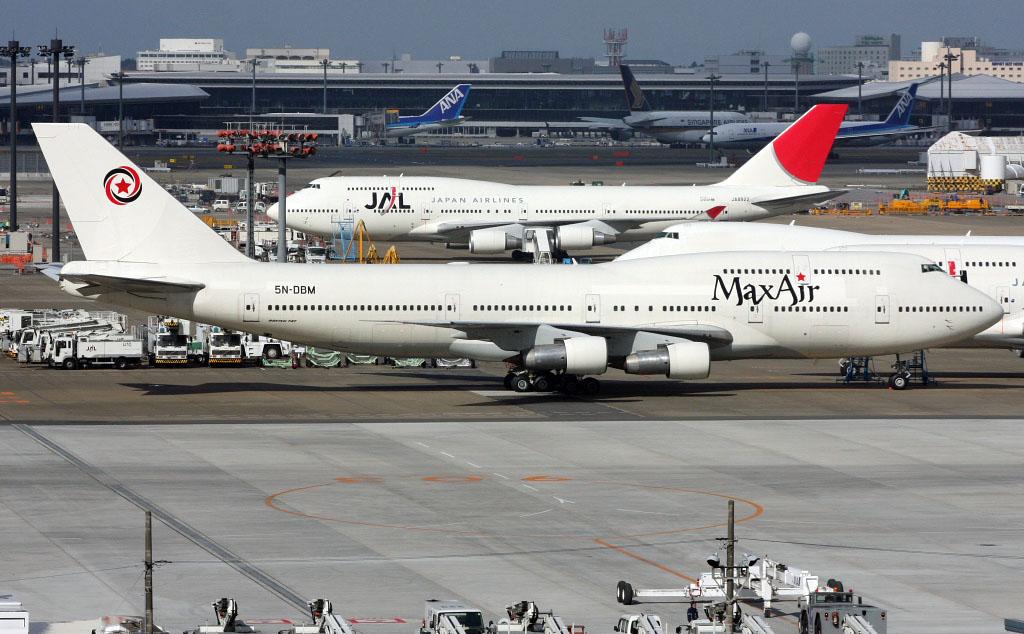Business
AfCFTA: FG to regulate road transport system

The Federal Government plans to regulate road transportation and mass transit operations in the country.
Minister of State for Transportation, Senator Gbemisola Saraki, disclosed this on Monday in a meeting with a section of automotive manufacturers led by Ifeanyichukwu Agwu, the Chief Executive Officer of BKG Exhibitions Limited, and Chairman Organising Committee of Abuja International Motor Fair.
She said the decision became necessary in order to reposition Nigeria’s road transportation system ahead of the African Continental Free Trade Area.
The Nigerian road transportation and mass transit is largely an unregulated territory.
She lamented that of 76000 trucks registered at the port only 17 met the standard, stressing that Lomé and Cotonou were complaining that Nigerian vehicles are below standard.
Saraki, however, disclosed that arrangements were being put in place for the federal government to brainstorm with players in the automotive industry, including assemblers and manufacturers, to find a local solution that would move the industry forward.
According to the her, over 97% of passengers’ movements in Nigeria are done on the road, stressing the need for the government to ensure proper restructuring for better service delivery.
“This afternoon, I was in a meeting that the Vice President chaired and we are looking at how best to tackle the issue of road transportation,” she said.
“I am sure you will agree with me that right now, it is unregulated, anybody can put the vehicle on the road and call himself a transporter and they are going.
“Funds are not coming, taxes are not paid, there is no consumer satisfaction, there is no feedback, it’s completely disoriented right now.
“And with the fact that ACFTA is coming soon, in order for us to compete properly, we need to have a regulated road transportation system for commercial operators, which now comes to the manufacturers.
“With the ACFTA coming, this morning it came out that we have a lot of substandard vehicles on the roads.
“I know that Lome and Cotonou have complained that the vehicles in Nigeria are below standard. Of the 76000 trucks registered supposedly only 17 meet the standard,” she noted.
Earlier, Agwu described the nation’s auto industry as an orphan that is being overused even though it accounts for 15% of those working in the country.
The BKG boss lamented that the auto sector is under heavy stress which affects Nigerians in terms of cost of transportation, lack of safety in the movement of goods and services due to bad vehicles.
According to Agwu, policy inconsistency is one problem that has cost the auto sector a whole lot of money.
“Companies set up factories to assemble with billions of Naira and the next thing you see is they change the policy and said you can bring in whatever you want.
“Where does that work? And that is why serious companies actually do not come to Nigeria” he said.
Business
Naira drops to N1,665/$ in parallel market

Naira drops to N1,665/$ in parallel market
The Naira yesterday depreciated to N1,665 per dollar in the parallel market from N1,660 per dollar last weekend.
But the Naira appreciated to N1,534.56 per dollar in the official foreign exchange market.
READ ALSO:
- Bode George rejects Old Students move to take over King’s College
- Russia claims capture of Ukrainian frontline town
- Obi alleges threat to life over comments on Tinubu
Data published by the Central Bank of Nigeria, CBN, showed that the exchange rate for Nigerian Foreign Exchange Market (NFEM) fell to N1534.56 per dollar from N1,535 per dollar last week Friday, indicating 44 kobo appreciation for the naira.
Consequently, the margin between the parallel market and NFEM rate widened to N130.44 per dollar from N125 per dollar last weekend.
Naira drops to N1,665/$ in parallel market
Business
MaxAir suspends flight operations for five days

MaxAir suspends flight operations for five days
MaxAir Limited has announced a temporary suspension of flight operations from January 4 to January 8, 2025, to conduct scheduled aircraft maintenance.
In a statement issued Sunday, the airline’s management stated, “This necessary maintenance ensures we continue delivering safe, reliable, and efficient services to you.”
The airline noted that some routes might face disruptions or cancellations during the maintenance period. However, MaxAir assured passengers that normal flight schedules would resume by January 9, 2025.
READ ALSO:
- Two kidnappers killed, four victims rescued in Imo
- Two ladies producing drug-laced cakes for students arrested in Ilorin
- Governor’s aide survives ambush in Southern Kaduna
Passengers impacted by the changes can reschedule their flights at no additional cost.
The announcement comes just weeks after an incident in December 2024, when an engine on a MaxAir aircraft carrying Borno State Deputy Governor, Alhaji Umar Kadafur, and over 100 passengers caught fire shortly after departing Maiduguri International Airport.
The aircraft, en route to Abuja, suffered engine failure caused by a bird strike approximately 10 minutes into the flight. The pilot and crew successfully performed an emergency landing back at Maiduguri Airport, averting a potential disaster.
In a subsequent statement, the airline confirmed the pilot’s decision to return to the airport was prompted by “abnormal engine parameters.”
MaxAir suspends flight operations for five days
Business
8 financial mistakes to avoid in 2025

8 financial mistakes to avoid in 2025
Managing your money is more crucial than ever as 2025 approaches. Although Nigeria’s economy is unpredictable, you might go from barely making ends meet to actually flourishing by avoiding common financial mistakes.
Here are eight financial mistakes to avoid in 2025.
1. Taking unnecessary loans
Although taking out a loan can seem tempting, doing so can eventually make you take on more debt. High interest rates and undisclosed costs are some of the features of loans, which may quickly add up and make repayments difficult. Before taking out a loan, always consider whether it is necessary and make sure it fits with your financial situation. Consider whether you truly need anything before taking out a loan.
2. Mixing personal and business finances
Combining your personal and business money in a single account could lead to confusion. Keep them separate to ensure transparency and accountability. If your business generates your major income, pay yourself a salary and keep separate accounts for personal and business spending. This can help you keep organised and avoid money problems down the road.
READ ALSO:
- CNPP urges opposition to unite against Tinubu’s second term
- 25-year-old man arrested for allegedly kidnapping minor in Kano
- Protest in Ondo community over plans to impose monarch
3. Investing without proper understanding
Investing is an intelligent way to build wealth, but putting your money in projects you don’t completely understand might cause harm. Whether it’s stocks, real estate, or mutual funds, take the time to study the dangers and benefits while seeking professional counsel. Do not fall into “get-rich-quick” schemes and instead use technology to enhance your knowledge. And, as you invest carefully, avoid making reckless lifestyle decisions that strain your budget. These decisions have the potential to undermine your progress toward financial stability.
4. Confusing saving with investing
Savings accounts provide security and access to funds, but they typically fail to keep up with inflation. Investing, on the other hand, can help you create wealth through earnings that compound. Distribute funds for suitable investment options, such as equities or mutual funds, for long-term goals like retirement or owning a home. Seek advice from financial professionals to create a diverse portfolio.
5. Neglecting an emergency fund
Without an emergency fund, unexpected expenses such as car maintenance, medical expenses, or sudden job losses may arise. These unforeseen expenses might throw you off if you don’t have an emergency fund. Aim to accumulate 12–18 months’ worth of living costs in liquid funds in a different account. Having this reserve will help you feel more at ease and prevent you from depending on loans when things get hard.
READ ALSO:
- Osimhen scores 10th goal as Galatasaray beat Goztepe 2-1
- UN accuses Israel of ceasefire breach
- Fulani herdsmen from Nigeria kill five Cameroonian soldiers, says MP
6. Living pay cheque to pay cheque
If you spend every naira as soon as it arrives, leaving little provision for emergencies or savings, you risk becoming overly reliant on each pay cheque for everyday costs. Identify and reduce nonessential spending, such as eating out or unused subscriptions, and set aside some funds for savings. If possible, search for ways to supplement your income, such as freelancing or converting a pastime into a side hustle.
7. Ignoring budgeting
It’s simple to lose track of your finances without a budget, which can lead to both excessive spending and insufficient savings. Make a thorough budget that breaks down your sources of income so that you can save for fixed costs like your child’s school, a down payment on a home, or retirement while prioritising necessities like rent, food, and medical care. Put your earnings and outlays in writing, then create a strategy that you can follow. Budgeting is about maintaining control, not about limiting oneself.
8. Forgetting about inflation
The money you have now will not purchase as much tomorrow due to inflation. To beat inflation, make sure your money holds its value by investing in assets like stocks or real estate that can grow faster than inflation. Making money work harder is necessary to maintain its worth; simply preserving money is insufficient.
Financial management can be stressful, but avoiding these costly mistakes can help significantly. Financial growth takes time, so be patient with yourself and maintain consistency. In a challenging economy, every wise decision counts. Let 2025 be the year you take control of your finances and begin creating the future you want.
8 financial mistakes to avoid in 2025
-

 metro1 day ago
metro1 day agoUpdated: Nigerians worry over Wike’s look after poisoning alarm
-

 Education1 day ago
Education1 day agoUNILORIN introduces courier service for collection of certificates
-

 metro2 days ago
metro2 days agoYou saved Nigeria’s democracy by defeating third term agenda, Tinubu tells Nnamani
-

 Education1 day ago
Education1 day agoWAEC announces resit exams for candidates from Jan/Feb 2025
-

 Business2 days ago
Business2 days ago8 financial mistakes to avoid in 2025
-

 metro1 day ago
metro1 day agoDistribution of CNG buses tears NANS leaders apart
-

 metro2 days ago
metro2 days agoNDLEA arrests 61-year-old female Lagos socialite, drug kingpin
-

 metro2 days ago
metro2 days agoProtest in Ondo community over plans to impose monarch



